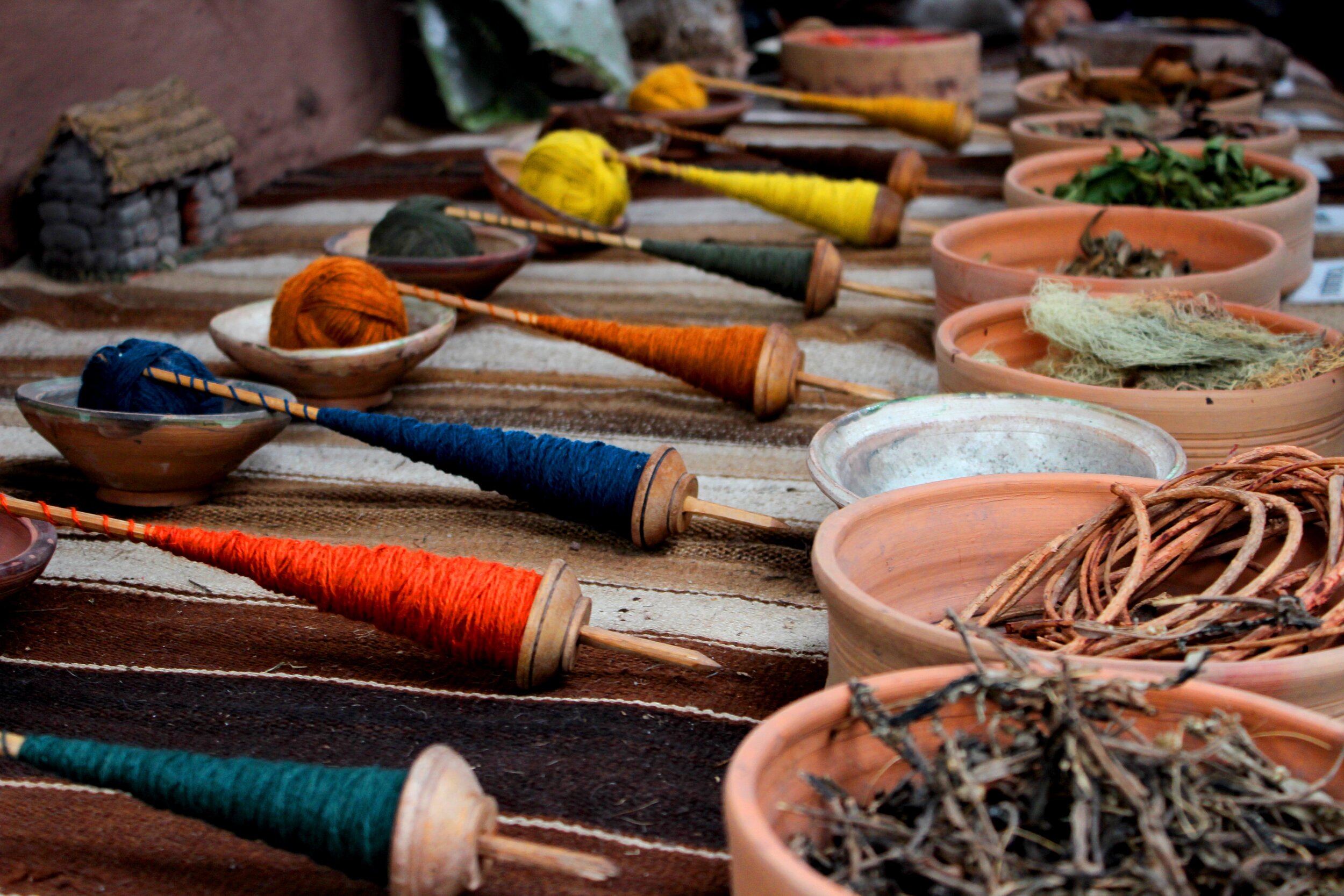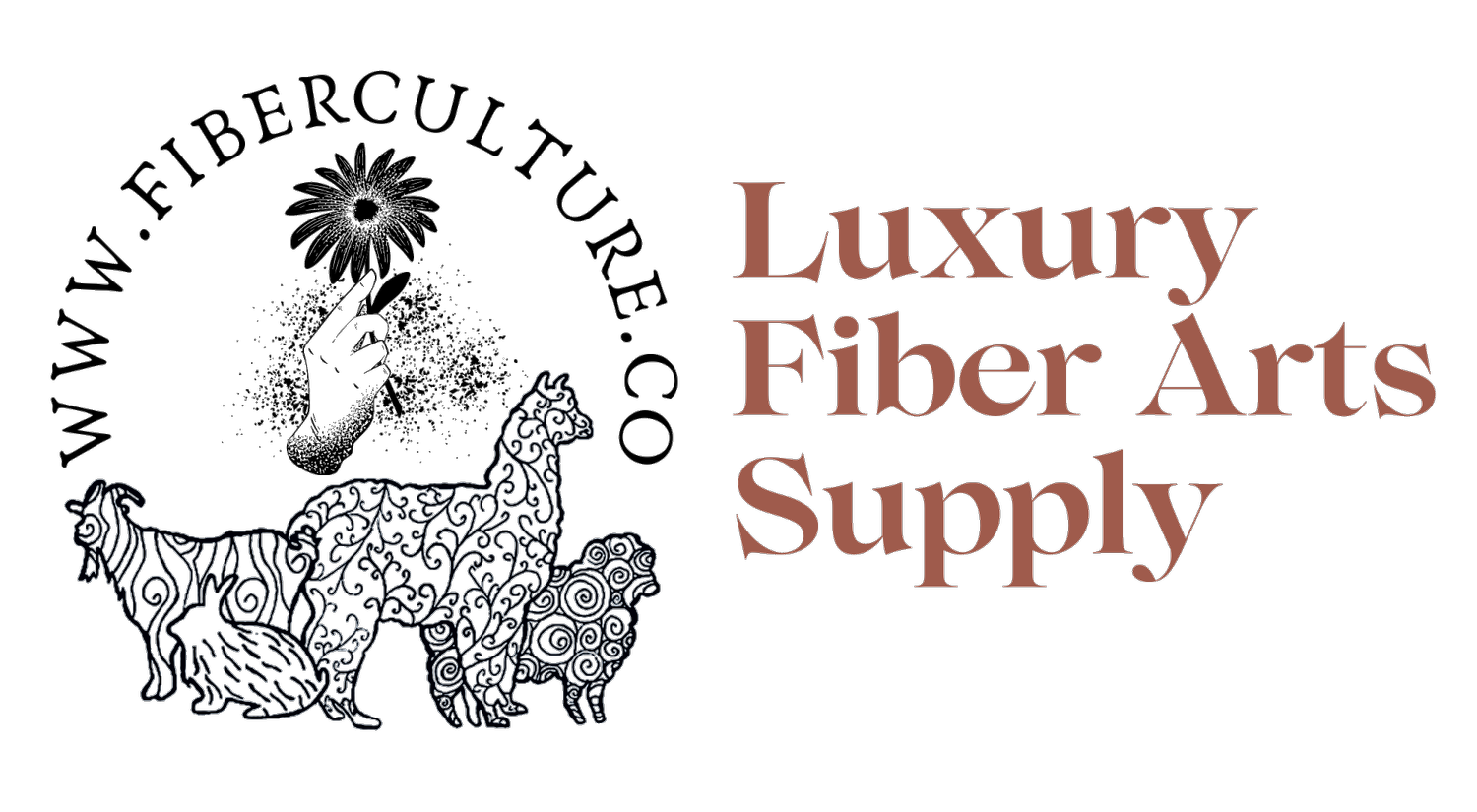
Building a luxury fiber farm from the field up.
Five miles out from the historic town of Lancaster, the 36 acre homestead lays, nestled amongst the scenic, rolling hills of beautiful central Kentucky. As a first generation female farmer, fresh out of city life and learning to live on this empty plot of land, I am striving to build this farm up into a self-sustaining operation that will provide for my family, offer organic natural products and services for the small local community, and ensure a bright future for my daughter.
By implementing a multitude of sustainable agriculture techniques, modern efficient farming, and permaculture practices, my goal is to preserve our land for future generations of both humans and wildlife, while demonstrating to the community a way of farming that gives back to both us and the earth. Many of my products are handcrafted in the farmhouse fiber studio, using as little electricity and as many natural, eco-friendly materials as possible.
I am a big believer in the slow living and slow textiles movement, always weaving, spinning, knitting, crafting by hand on traditional hand and foot powered tools. Living off of the land and growing natural, sustainable foods and fibers. Using my hands to craft beautiful, unique creations, and encouraging others to do the same. I offer in the shop all types of natural fiber arts and textile products for the growing community of knitters, crocheters, spinners, weavers, and every other fiber artist.
I hope you join our movement towards a greener, more sustainable future. Make your own contribution by supporting your small businesses and local farmers, or look to start your own.
Serena Gomez
Owner · Textile Artisan

Living off the land.
From growing my own fruits and veggies, to raising my own chickens, quail and turkeys for meat and eggs, I am always working towards a life of complete self reliability. Since acquiring the 36 acre homestead property, I have added rain barrels to my home gutter systems, constructed efficient, high yield raised garden beds using my own compost, and outfitted my chicken coop with a built-in automatic rain watering system for the chickens! I also harvest all of my own pesticide free hay from the acreage to feed the animals each winter. In the coming years I hope to install photo-voltaic solar panels to provide power to the home and outbuildings. Check out my blog to read all about past, present and future farm projects.

An environmentally friendly livestock.
On this luxury fiber farm, I am working diligently to expand and focus on our herd of alpacas. Why did I choose these fiber producing animals above all others? Alpacas are known to produce the softest fibers, in over 22 lovely natural colors. Their fleece is hypoallergenic, containing no lanolin (the greasy substance found on sheep’s wool that causes skin sensitivity in some people). The fiber is also very durable, naturally moisture resistant, lighter in weight than sheep’s wool- yet almost three times as warm.
Originating from the high mountainous steppes of Peru, and revered by their homeland residents, Alpacas are resilient, hardy creatures, with a curious and gentle disposition. They require relatively little maintenance, and are one of the most environmentally friendly livestock in the industry. They eat conservatively and require only a small amount of pasture, making them a great addition to a small farm. Their soft, padded feet and light step preserve the land they walk over, keeping the soil structure intact and ensuring quick pasture recovery.
Comparable to cashmere, Alpaca fiber is truly worth owning. It only takes one touch of this luxuriously soft fiber, and you’ll never turn back.

Sustainable natural textiles.
Wool, mohair, angora, cotton, silk, hemp. In addition to alpaca, Fiberculture wants to provide consumers with the highest quality assortment of natural fibers and products. Unlike synthetic fibers that are created using harmful chemicals in a lab or factory, wool and other naturally occurring fibers are completely safe, reusable, renewable and biodegradable, and environmentally friendly. Clothing and textiles made from natural fibers are long wearing and provide maximum comfort.

A focus on handmade & ethical sources.
Many of my products are handcrafted using traditional textile preparation methods and techniques. Tapestries are woven on a traditional wooden lap loom, yarns are spun by hand using drop spindles or a foot powered treadle spinning wheel. Garments and accessories are woven, knitted, crocheted, or sewn by hand, providing each item with a uniquely organic feel and unmatched quality. Fiber and yarns are sourced from local flocks and farms in addition to my own, and are often washed and processed right here in the farm based studio. Visit the shop to discover a variety of gorgeous and unique handcrafted items.

Modern sustainable agriculture.
Traditional farming with a modern twist. As farmers it is important to return to our roots and to employ age old traditional farming techniques that have sustained farmers for thousands of years. However, as modern advances in agricultural knowledge and technology become more commonplace, it is equally important to find new ways to do things. We must embrace new improvements to old techniques- to make farming more efficient, more sustainable, and more productive.
At Fiberculture farm, I follow the practice of Permaculture. A term coined by Australians David Holmgren and Bill Mollison in 1978, Permaculture is the development of agricultural ecosystems with the intention to make them sustainable and self-sufficient. It is working with nature, instead of against it, by observing the symbiotic nature of all living things and their respective ecological makeup, and trying to implement that into your own farming structure.
I am continually striving to develop the homestead into a self-sustaining permaculture paradise, one that can both provide for my farm and family while still preserving the delicate balance of the earth and it’s ecosystems located here. I have already implemented rainwater harvesting, no-till high yield micro farming, pasture rotation and natural composting into my farm system.
Watch this video to learn more about permaculture.







